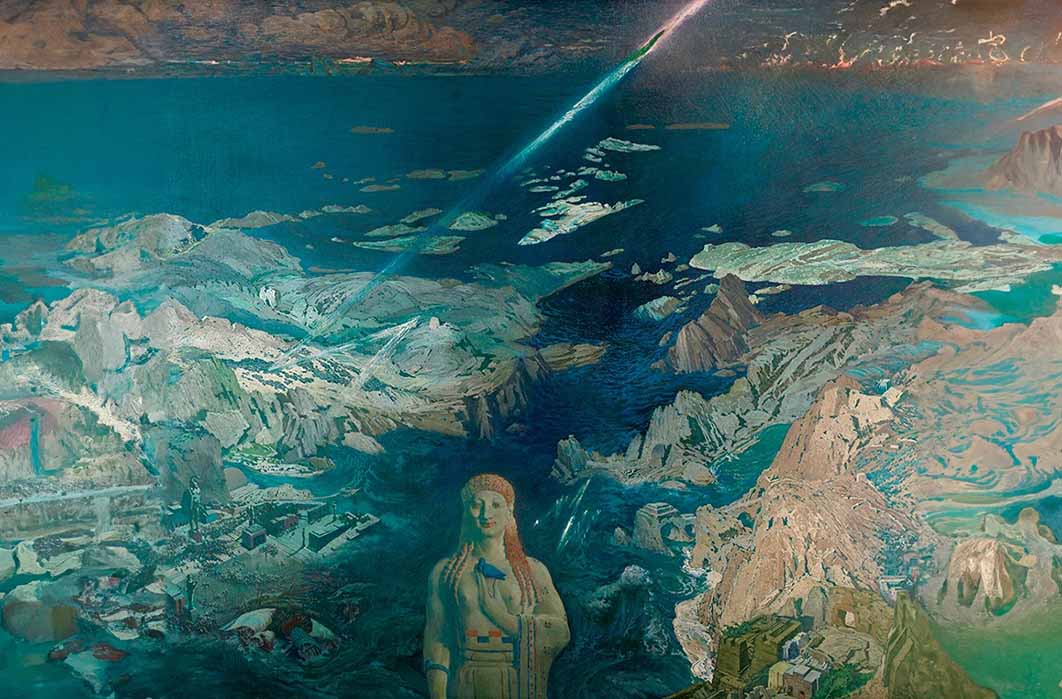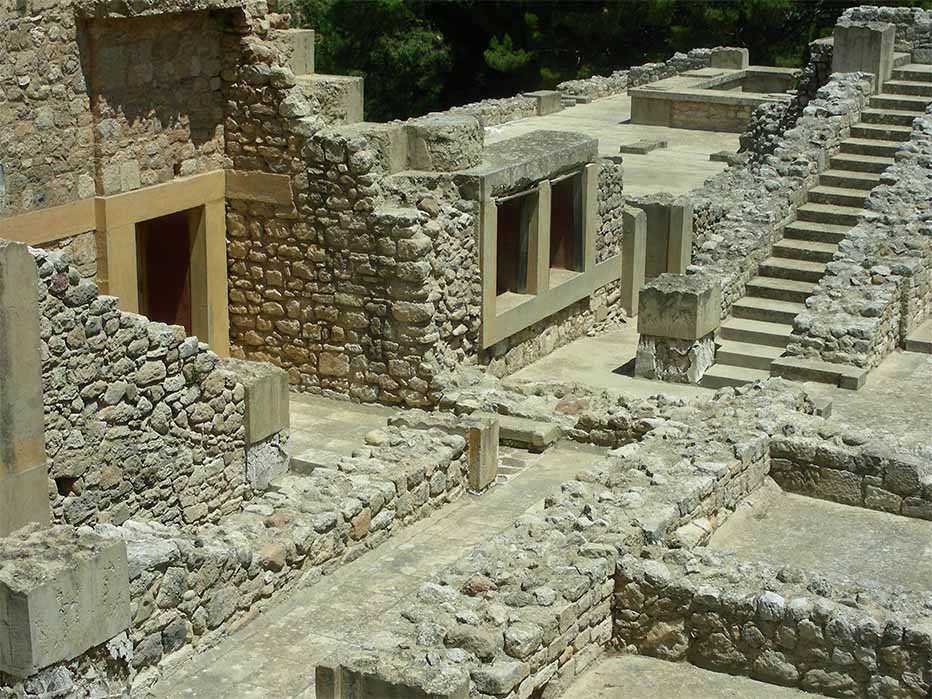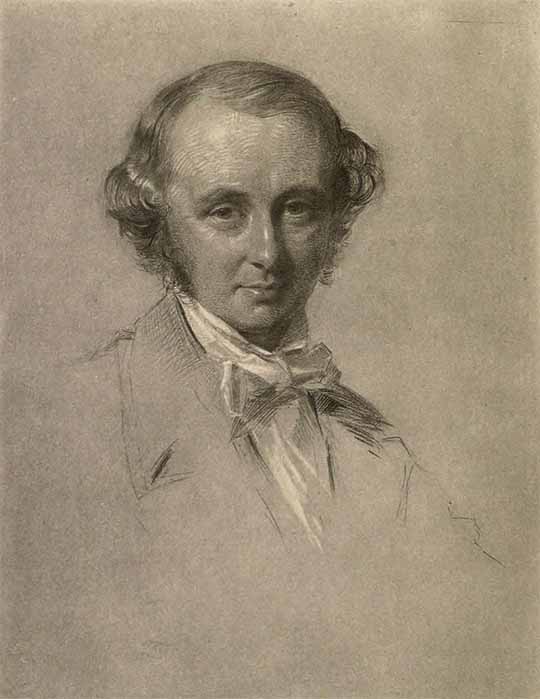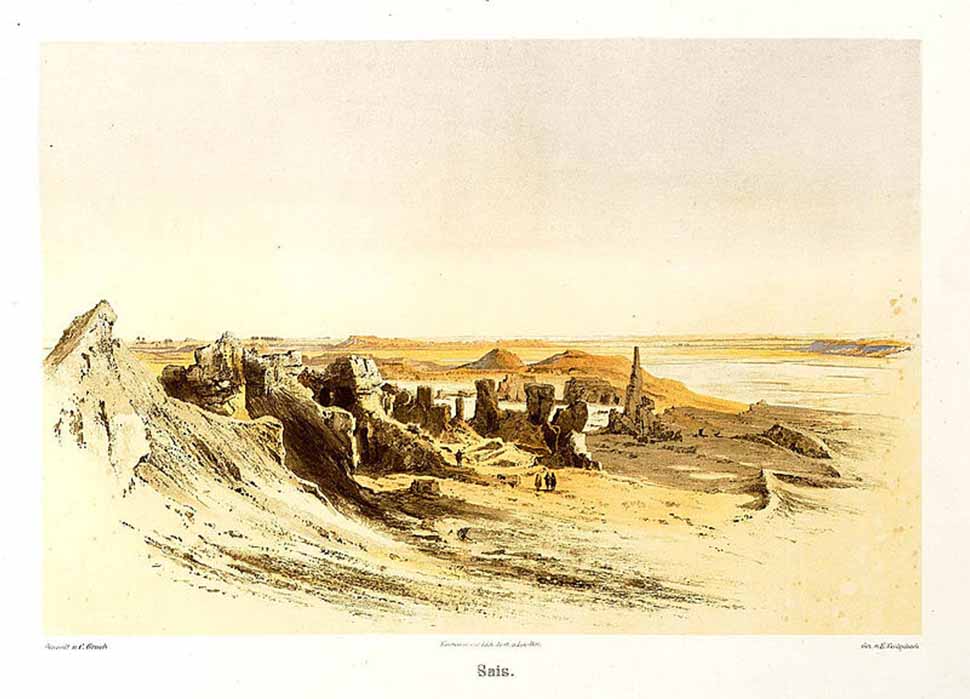
Asia Minor: Atlantis, Asteroids And The Birth Of Athena
“Every word of it is true,” declares Plato in his Timaeus regarding the existence of Atlantis. Something in excess of 20,000 books have been published on the topic of Atlantis. Mainstream academia has long regarded it as fiction and come up with a number of hypotheses as to why Plato wrote the narrative; it is a fabricated moral tale; it is a philosophical analogy or a parody of Athens’ war against Syracuse. This line of reasoning was first given by academics at a time in the 19th century when it was surmised by many that all mythology was the fervid by-product of a fertile primitive imagination which at best merely signified the passing of the seasons. In 1841, Thomas-Henri Martin stated in Dissertation sur l’Atlantide’, Études sur le Timée de Platon / Study of Plato’s Timaeus that: “[Atlantis] belongs to another realm, which is not in the domain of space but of thought”.
However, since that time archaeology has been able to demonstrate the underlying truth of mythology through the discoveries of such places as Troy, Knossos, Mycenae, and Pylos to name but a few. Places once considered fantasies have been proved to have existed. In spite of these discoveries the position of mainstream academia regarding Atlantis has remained largely unchanged. The truth is that the answer lies in the extant texts and in plain sight.

Excavation site of Knossos Palace complex, Minoan civilization, Crete (Image: Courtesy Micki Pistorius)
The most influential translation of the Atlantis narrative was made by Benjamin Jowett (1817-1893), an English tutor, a theologian, translator, and Master of Balliol College, Oxford. His translation was published in 1871 and was a success even though certain scholars at the time criticized particular renderings, and noted many small errors. This translation has subsequently colored the popular view of Atlantis.

Benjamin Jowett, by George Richmond (1854) (Public Domain)
Atlantis Timeline: 9,000 Years Before Solon?
So many writers have picked up on the statement in Plato that the events concerning Atlantis and its destruction via cataclysmic earthquake and floods, had unfolded some 9,000 years earlier than Solon’s time. They choose to ignore the other statement that Plato’s dates originated from hieroglyphs written in the Temple of Neith in Sais, Egypt, and seek to write about or study climatic events sometime around 9500 BC. Despite the fact that at that time (9500 BC) both Egypt and Athens (who are the main protagonists in the Atlantis narrative) did not exist, these writers persist with an irrelevant analysis of conditions pertaining to that distant time. The founding of Sais, where the Temple of Neith is located can be dated to circa 1240 BC, matching the mythological era of Attica’s founding father Theseus (1255- 1203 BC). Historically in 1250 BC major destructions occurred in various locations of mainland Greece and Asia Minor for reasons that have not yet been pinpointed by archaeologists. It heralded what has been termed as the ‘Collapse of the Bronze Age’.

Ruins of Sais, by Karl Richard Lepsius (1810–1884) (Public Domain)





